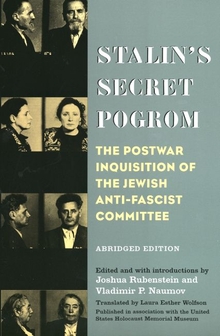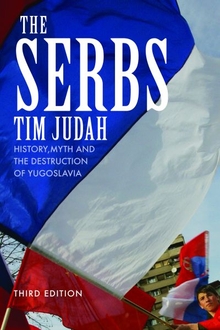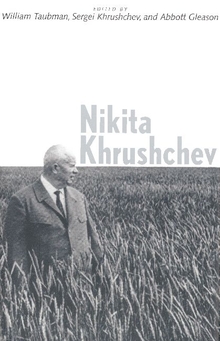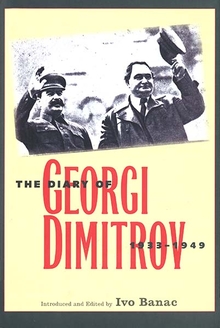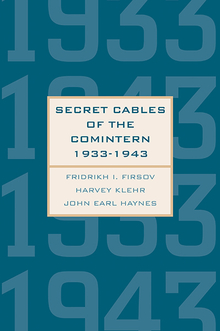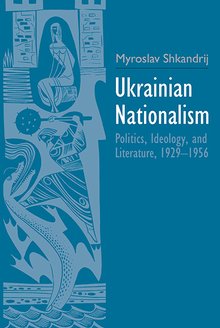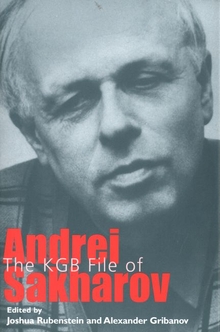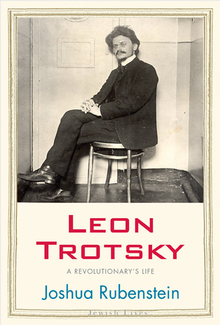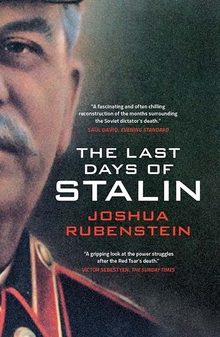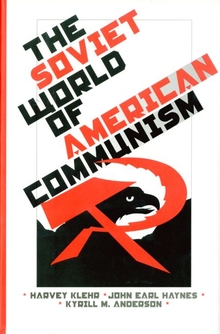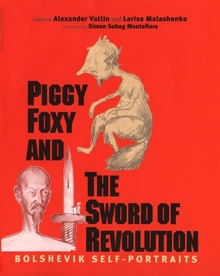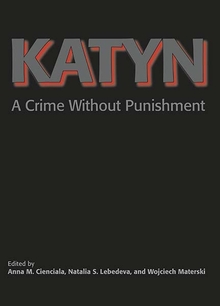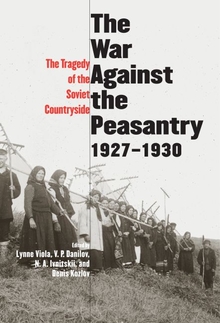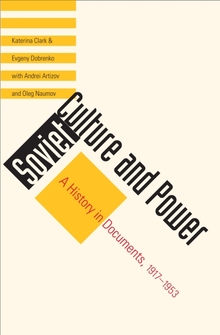Stalin's Secret Pogrom
WARNING
You are viewing an older version of the Yalebooks website. Please visit out new website with more updated information and a better user experience: https://www.yalebooks.com
The Postwar Inquisition of the Jewish Anti-Fascist Committee
Edited and with introductions by Joshua Rubenstein and Vladimir P. Naumov; Translated by Laura Esther Wolfson
In the spring and summer of 1952, fifteen Soviet Jews, including five prominent Yiddish writers and poets, were secretly tried and convicted; multiple executions soon followed in the basement of Moscow’s Lubyanka prison. The defendants were falsely charged with treason and espionage because of their involvement in the Jewish Anti-Fascist Committee, and because of their heartfelt response as Jews to Nazi atrocities on occupied Soviet territory. Stalin had created the committee to rally support for the Soviet Union during World War II, but he then disbanded it after the war as his paranoia mounted about Soviet Jews.
For many years, a host of myths surrounded the case against the committee. Now this book, which presents an abridged version of the long-suppressed transcript of the trial, reveals the Kremlin’s machinery of destruction. Joshua Rubenstein provides annotations about the players and events surrounding the case. In a long introduction, drawing on newly released documents in Moscow archives and on interviews with relatives of the defendants in Israel, Russia, and the United States, Rubenstein also sets the trial in historical and political context and offers a vivid account of Stalin’s anti-Semitic campaign.
For many years, a host of myths surrounded the case against the committee. Now this book, which presents an abridged version of the long-suppressed transcript of the trial, reveals the Kremlin’s machinery of destruction. Joshua Rubenstein provides annotations about the players and events surrounding the case. In a long introduction, drawing on newly released documents in Moscow archives and on interviews with relatives of the defendants in Israel, Russia, and the United States, Rubenstein also sets the trial in historical and political context and offers a vivid account of Stalin’s anti-Semitic campaign.
Published in association with the United States Holocaust Memorial Museum
Joshua Rubenstein is the Northeast Regional Director of Amnesty International USA and a longtime associate at Harvard University’s Davis Center for Russian Studies. He is also the author of Tangled Loyalties: The Life and Times of Ilya Ehrenburg. Vladimir P. Naumov is executive secretary of the Presidential Commission of the Russian Federation on the Rehabilitation of Victims of Political Repression and editor of the Russian-language edition of this volume.
“When Professor Naumov sent me a copy of the Russian original, I reviewed it . . . urging an English edition of this horrify and revealing story of anti-Semitism, torture, falsification, and secrecy . . . and now we have it, well presented for—I hope, the education of a wide readership.”—Robert Conquest, author of The Great Terror
“Those interested in a comprehensive account of the Kremlin’s machinery of destruction and Stalin’s anti-Semitic campaign would do well to consult the recently published Stalin’s Secret Pogrom.”—Lev Krichevsky and Sharon Samber, Detroit Jewish News
“Read this valuable work if only to answer the query of what might have been.”—William Korey, Hadassah Magazine
"What a story [Rubenstein and Naumov] tell. . . . Rubenstein's [introduction is] brilliant and unforgiving."—History News Network
“Stalin’s Secret Pogrom is neither fiction nor a novel, yet most components of a novel are there: Byzantine plots and subplots; treachery, betrayal, pathos and hatreds; villains and innocent victims. . . . Essential reading for anyone genuinely interested in understanding what happened during that tragic period, and why.”—Lyber Katz, Jewish Currents
“At a time when modern tyrants—including the one-time Soviet ally Yasser Arafat—still pose a grave threat to the future of the Jewish people, this is a story worth remembering.”—Jonathan S. Tobin, Jewish Exponent
“Rubenstein . . . has been indefatigable and imaginative in tracking down and interviewing surviving relatives, friends, and peripheral participants in the trial. He has also made good use of previous commentaries and scholarship, especially the work of the Israeli scholar Shimon Redlich.”—Sidney Monas, Journal of Modern History
“[A] significant work . . . [Rubenstein] provides new information about the trial that shatters the many myths that have surrounded the case for years.”—Lifestyles
“A brilliant exposition of Stalin’s anti-semitism. The interrogations of the victims make chilling reading while the introduction by Rubenstein, a distinguished historian, combines forensic skill with dramatic storytelling.”—London Mail on Sunday, (Best Reads of 2001)
“Making public as it does such extensive documentation, Stalin’s Secret Pogrom brings to light, once and for all, this horrific chapter in Soviet history.”—Gene Gorlewski, New Britain Herald Press
“The new book, the latest installment in the remarkable Annals of Communism series being published by Yale University Press, presents the grimly fascinating record of their trial as well as some informed speculation about the reasons that Stalin wanted the committee members dead. . . . What might have been a dry document of bureaucratic terror, a bloodless verbatim text, turns out to be a vivid, tragic panorama full of prickly individuals.”—Richard Bernstein, New York Times
“The transcripts, fluently translated by Laura Wolfson, are perhaps the most dramatic part of a mesmerizing book.”—Abraham Brumberg, New York Times Book Review
“Just when glossy blockbusters like Pearl Harbor threaten to dull the horrors of World War II, along comes a haunting new book that reminds us why Hollywood fiction is no substitute for reality. In Stalin’s Secret Pogrom, editors Joshua Rubenstein and Vladimir Naumov present the fullest account to date of one of the most vicious episodes of anti-Semitism in Russian history: the arrest, torture, and secret trial of 15 Jews. . . . This is hardly another dry tome on Soviet anti-Semitism. At the volume’s core is the grimly fascinating transcript of the secret trials, brought to life in Rubenstein’s introduction through chilling interviews with relatives of the accused.”—Anna Kuchment, Newsweek
“A little knowledge of the Soviet Union in the 20th century makes this book fascinating, almost a ‘page-turner’, for the reader interested in August 12, 1952. Finally, 50 years after that horrific event, we can see something of the varied personalities of the people whom we today revere as martyrs and heroes.”—Larry Schofer, Outlook
“A stellar contribution to Soviet-Jewish historiography.”—Sheldon Kirshner, The Canadian Jewish News
“Stalin’s Secret Pogrom is an important book for people who hope to understand those terrifying years and the years that followed.”—Sylvia Rothchild, The Jewish Advocate
“No more important book on communism has been or will be published for years.”—Geoffrey Wheatcroft, Times Literary Supplement
“Fascinating. . . . Just as this book brilliantly portrays Soviet attitudes to the Jews, it also reveals a great deal about Soviet attitudes to justice in general. . . . With the publication of this book, the English-speaking world can also come to better understand one of the lesser-known tragedies of Stalin’s regime.”—Anne Applebaum, Wall Street Journal
""Researchers with an interest in the late Stalin period are likely to welcome this new abridged version of Yale University's meticulously prepared collection of documents relating to the 1952 trial of fifteen prominent Soviet Jews on charges of espionage and treason."—Emily D. Johnson, Slavic and Eastern European Journal
“Thank you for sending me Stalin’s Secret Pogrom. Yale University Press is to be commended for publishing it. I have rarely felt so strongly about a book on contemporary history. Joshua Rubenstein and Vladimir P. Naumov have given us a power-packed volume about one of the darkest and cruelest chapters of Stalinist anti-Semitism and its mockery of human decency and justice. It must be read and reread.”—Elie Wiesel
Winner of the 2001-02 National Jewish Book Award in the Eastern European Studies category, given by the Jewish Book Council
ISBN: 9780300104523
Publication Date: October 20, 2005
Publishing Partner: Published in association with the United States Holocaust Memorial Museum
Publication Date: October 20, 2005
Publishing Partner: Published in association with the United States Holocaust Memorial Museum
496 pages, 6 1/8 x 9 1/4
TBD
TBD
Sales Restrictions: World excluding Russia

